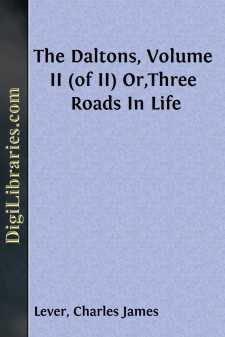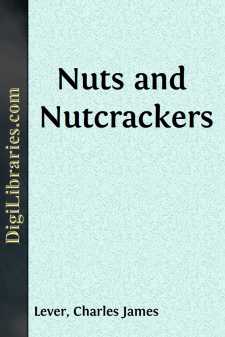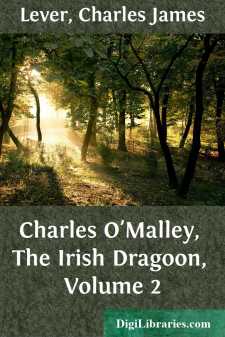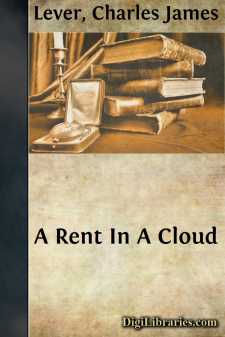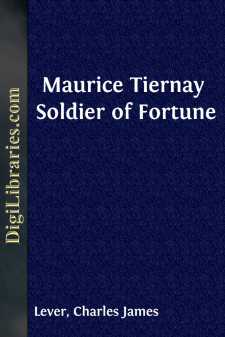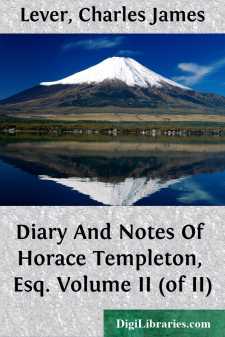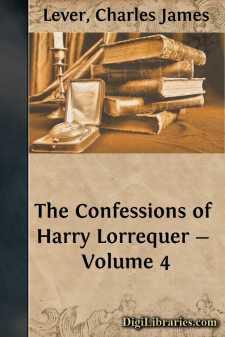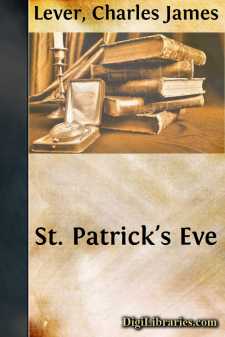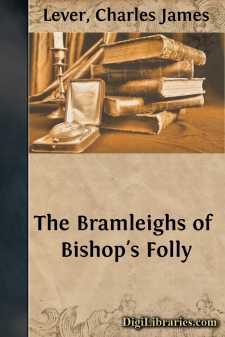Categories
- Antiques & Collectibles 13
- Architecture 36
- Art 48
- Bibles 22
- Biography & Autobiography 813
- Body, Mind & Spirit 142
- Business & Economics 28
- Children's Books 17
- Children's Fiction 14
- Computers 4
- Cooking 94
- Crafts & Hobbies 4
- Drama 346
- Education 46
- Family & Relationships 57
- Fiction 11829
- Games 19
- Gardening 17
- Health & Fitness 34
- History 1377
- House & Home 1
- Humor 147
- Juvenile Fiction 1873
- Juvenile Nonfiction 202
- Language Arts & Disciplines 88
- Law 16
- Literary Collections 686
- Literary Criticism 179
- Mathematics 13
- Medical 41
- Music 40
- Nature 179
- Non-Classifiable 1768
- Performing Arts 7
- Periodicals 1453
- Philosophy 64
- Photography 2
- Poetry 896
- Political Science 203
- Psychology 42
- Reference 154
- Religion 513
- Science 126
- Self-Help 84
- Social Science 81
- Sports & Recreation 34
- Study Aids 3
- Technology & Engineering 59
- Transportation 23
- Travel 463
- True Crime 29
Charles James Lever
Charles James Lever (1806-1872) was an Irish novelist known for his picaresque tales and vivid depictions of Irish life. His best-known works include "Charles O'Malley, the Irish Dragoon" and "Harry Lorrequer," which blend humor, adventure, and social commentary. Lever's novels, often serialized in magazines, gained widespread popularity in the 19th century for their lively characters and engaging narratives.
Author's Books:
Sort by:
CHAPTER I. A MORNING OF MISADVENTURES. "Well, my Lord, are we to pass the day here," said Count Trouville, the second of the opposite party, as Norwood returned from a fruitless search of George Onslow, "or are we to understand that this is the English mode of settling such matters?" "I am perfectly ready, Monsieur le Comte, to prove the contrary, so far as my own poor abilities...
more...
If Providence, instead of a vagabond, had made me a justice of the peace, there is no species of penalty I would not have enforced against a class of offenders, upon whom it is the perverted taste of the day to bestow wealth, praise, honour, and reputation; in a word, upon that portion of the writers for our periodical literature whose pastime it is by high-flown and exaggerated pictures of society,...
more...
CHAPTER I.THE DOCTOR'S TALE.[1]"It is now some fifteen years since—if it wasn't for O'Shaughnessy's wrinkles, I could not believe it five—we were quartered in Loughrea. There were, besides our regiment, the Fiftieth and the Seventy-third, and a troop or two of horse artillery, and the whole town was literally a barrack, and as you may suppose, the pleasantest place...
more...
CHAPTER I. THE WHITE HORSE AT COBLENTZ OUT of a window of the Weissen Ross, at Coblentz, looking upon the rapid Rhine, over whose circling eddies a rich sunset shed a golden tint, two young Englishmen lounged and smoked their cigars; rarely speaking, and, to all seeming, wearing that air of boredom which, strangely enough, would appear peculiar to a very enjoyable time of life. They were acquaintances...
more...
A WORD OF APOLOGY FOR MY TITLE. Before I begin my story, let me crave my reader's indulgence for a brief word of explanation, for which I know no better form than a parable. There is an Eastern tale—I forget exactly where or by whom told—of a certain poor man, who, being in extreme distress, and sorely puzzled as to how to eke out a livelihood, bethought him to give out that he was a great...
more...
CHAPTER I. 'THE DAYS OF THE GUILLOTINE' Neither the tastes nor the temper of the age we live in are such as to induce any man to boast of his family nobility. We see too many preparations around us for laying down new foundations, to think it a suitable occasion for alluding to the ancient edifice. I will, therefore, confine myself to saying, that I am not to be regarded as a mere pretender...
more...
CHAPTER I. The Ortl'er is the Mont Blanc of the Tyrol, and seen from Nauders, a village on a green, grassy table land, more than four thousand feet above the sea, can well bear comparison with the boldest of the Swiss Alps. Nauders itself, a type of a Tyroler village, is situated in a wild and lonely region; it has all the picturesque elegance and neat detail of which Tyrolers are so lavish in...
more...
THE GEN D'ARME. I had fortunately sufficient influence upon my fair friends to persuade them to leave Calais early on the morning following; and two hours before Kilkee had opened his eyes upon this mortal life, we were far upon the road to Paris. Having thus far perfectly succeeded in my plot, my spirit rose rapidly, and I made every exertion to make the road appear short to my fellow-travellers....
more...
FIRST ERA. IT was on the 16th of March, the eve of St. Patrick, not quite twenty years ago, that a little village on the bank of Lough Corrib was celebrating in its annual fair "the holy times," devoting one day to every species of enjoyment and pleasure, and on the next, by practising prayers and penance of various kinds, as it were to prepare their minds to resume their worldly duties in a...
more...
CHAPTER I. THE BISHOP'S FOLLY Towards the close of the last century there was a very remarkable man, Bishop of Down, in Ireland: a Liberal in politics, in an age when Liberalism lay close on the confines of disloyalty; splendidly hospitable, at a period when hospitality verged on utter recklessness; he carried all his opinions to extremes. He had great taste, which had been cultivated by foreign...
more...


